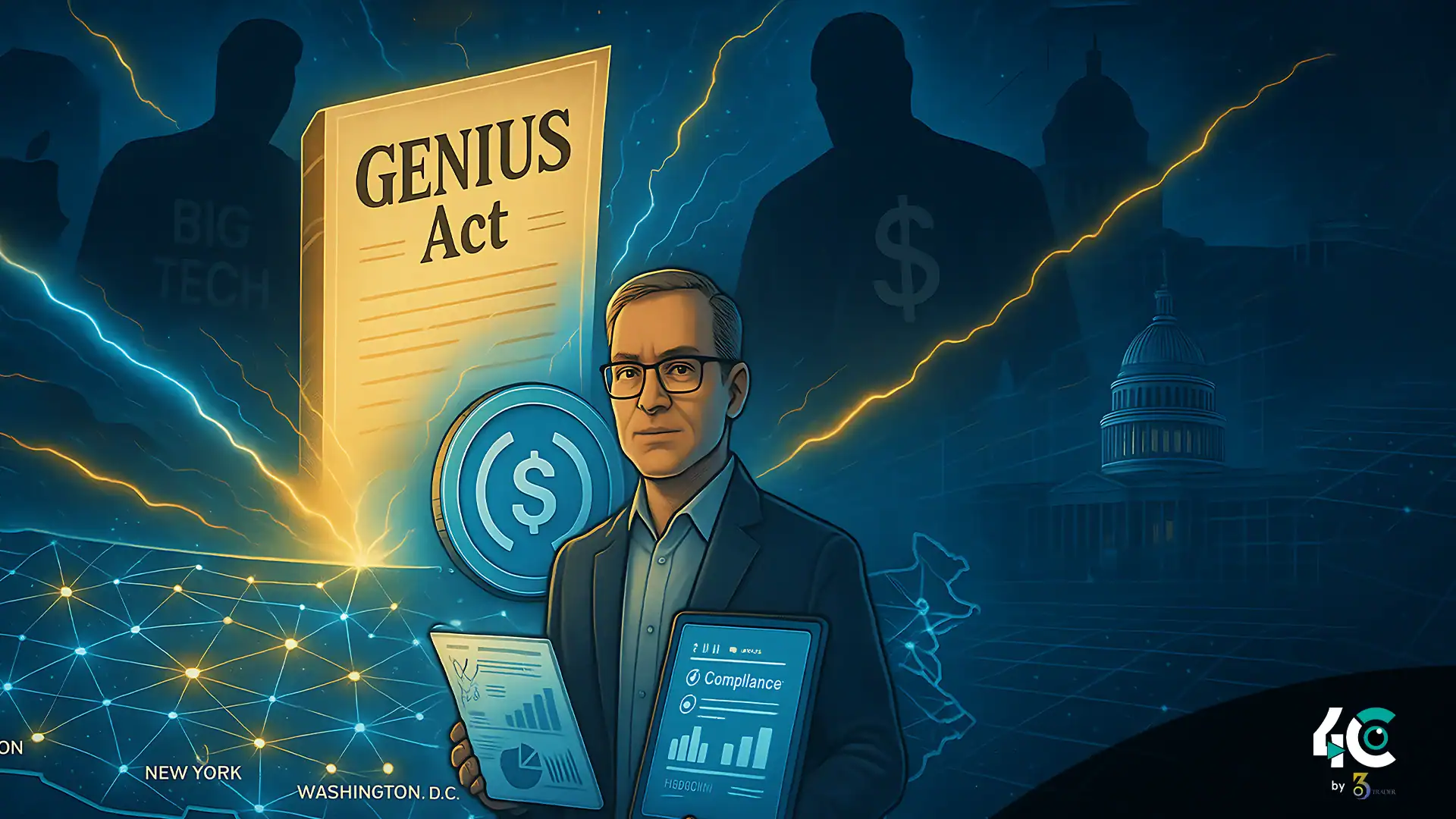The GENIUS Act is the first federal law to create a comprehensive regulatory framework for stablecoins in the United States. This is also known as the National Innovation Strategy for 2023. The ‘stablecoins’ Act clearly outlines conditions and eligibility for who can issue dollar-backed digital assets.
Circle‘s Chief Strategy Officer, Dante Disparte, highlighted a part of the law that is designed for Big Tech. Often referred to as the “Libra clause,” this provision obliges non-bank issuers of stablecoins to establish independent entities that will face antitrust scrutiny and approval from a Treasury-led committee review. The goal is to stop large tech companies from using their size to take over the financial space, as Meta tried with its Libra, which failed.
Laws also have requirements for traditional banks to follow. Any lender that issues a stablecoin must do so through a distinct legal entity, ensuring the tokens will not be used to take any risk or for leverage or lending. Disparte stated that it is a more conservative structure than other offerings from a financial institution like JPMorgan and one that will benefit consumers and the U.S. dollar.
Under the GENIUS Act, stablecoins that incur interest will be prohibited. It also imposes transparency, reserve, and auditing requirements. Issuers that have under $10 billion in assets can operate under state laws, but once they exceed $10 billion in assets, then a national trust bank charter is required. The new law penalizes unstable coins without real backing with jail terms, preventing another Terra-like collapse.
As anticipated, this law is changing the competitive dynamics.
Winners
Circle is a major beneficiary. Most of the new requirements are already met owing to its conservative reserves. Big banks like JPMorgan and Bank of America are also likely to enter the market through licensed subsidiaries. President Trump gains politically by the passing of the act because it continues with the narrative of economic modernization initiated by his administration and cedes legitimacy for the Trump-linked stablecoin USD1.
Losers
Tether, the largest stablecoin in the world, is facing big challenges. A foreign issuer of the token cannot lawfully offer it in the USA without regulatory approval or a qualified U.S. partner. Big Tech companies, including Apple, Amazon, and Meta, can’t launch a stablecoin, as there needs to be a unanimous approval by the Stablecoin Certification Review Committee. This measure is meant to prevent financial control from falling into unregulated entities.
In Limbo
Custodia Bank, an early crypto banking player, finds itself in murky waters. Custodia could struggle to compete with established banks without a master account from the Federal Reserve. Nonetheless, it has a patent on bank-created stablecoins and is in talks with smaller banks to use this IP as leverage against bigger players.
The ban on yield-generating stablecoins by the GENIUS Act may boost investor interest towards DeFi platforms like Ethereum. They forecast this will boost DeFi metrics for assets as institutions search for yield generation methods due to high interest rates.
Conclusion
The GENIUS Act would regulate stablecoins while promoting U.S. innovation that does not promote the dominance of Big Tech and traditional banking corporations. The new law sheds light on how various assets that reside in the digital domain would be subject to securities and other financial regulations. While certain players may need to change direction or restructure, it ultimately reinforces the ecosystem and supports the global digital economy role of the U.S. dollar.



























